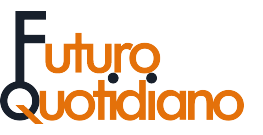 So what is Personal Value? In a century where innovation and technological progress is so prevalent and so fast that yesterday’s mobile phone is tomorrow’s recycling, it is easy to lose sight of personal value™. It is easier still to think more about the value of things than the value of humans. By the end of the 20th century, we had allowed ourselves to take the easy route, and to judge value by proxy indicators: possessions, celebrity, houses, cars, handbags, watches, and even arm-candy… But, at a time when half of world’s wealth is in the hands of 1% of population (The Guardian, September 2015), how is it possible to lose sight of the value of people? Clearly there is an urgent and pressing need to rebalance the pursuit of wealth and good citizenship; to recognise the true value of life and what makes us human. Everyone has the ability to make a difference, somewhere, somehow. Whether it be a billionaire building a school, or a poor man stretching out a hand to somebody in greater need. In the 21st century, we are able to lay our hands on so much more information and analysis about the value of things than any 20th century newspaper could give us, and at the mere stroke of a touchscreen at that. Hence, ‘millennials’ have far better-developed opinions about a wide range of matters than the previous generation ever had the opportunity to develop such extensive insights.
So what is Personal Value? In a century where innovation and technological progress is so prevalent and so fast that yesterday’s mobile phone is tomorrow’s recycling, it is easy to lose sight of personal value™. It is easier still to think more about the value of things than the value of humans. By the end of the 20th century, we had allowed ourselves to take the easy route, and to judge value by proxy indicators: possessions, celebrity, houses, cars, handbags, watches, and even arm-candy… But, at a time when half of world’s wealth is in the hands of 1% of population (The Guardian, September 2015), how is it possible to lose sight of the value of people? Clearly there is an urgent and pressing need to rebalance the pursuit of wealth and good citizenship; to recognise the true value of life and what makes us human. Everyone has the ability to make a difference, somewhere, somehow. Whether it be a billionaire building a school, or a poor man stretching out a hand to somebody in greater need. In the 21st century, we are able to lay our hands on so much more information and analysis about the value of things than any 20th century newspaper could give us, and at the mere stroke of a touchscreen at that. Hence, ‘millennials’ have far better-developed opinions about a wide range of matters than the previous generation ever had the opportunity to develop such extensive insights.
Global networks and social media
This trust, this corporate legacy, inheritance, and ‘reputation’, cannot be bought. The transparency, immediacy, and cohesion this brings to the global community now means that good neighbourliness and being in this together at a local, regional and even global community level means that my neighbour is the child or adult on the other side of the world making my “cheap” T-shirt. Caring for individuals and family is a community function – and we have all but lost that sense of “community.” The “millennial” generation can, and does make choices based both on value and on values, not just on price. They are very much aware of the effects corporations, manufacturing, industry, and institutions can have on people and the environment; and, they know about the megatrends rising rapidly around them.
The informed Millennial
The informed millennial knows right from wrong because she has at least 50 more years of experience, albeit virtual, in making that value judgement than the 1980s teenager (because the internet offers her a neat précis and, besides, she’s been thinking about it whilst saving up for it). Her decision will be researched, informed, and probably based on popular sentiment, mixed with her own deliberations. Increasingly, she will be taking into account whether she feels comfortable giving money to a company that does not clearly demonstrate the values she holds dear. She will consider quality and how long the item will last, after-sales support, and service. Corporate philanthropy might even make her wonder what terrible atrocities they are trying to make up for! But, most importantly, she will consider how, by whom, and where it was made and in what conditions. By making these informed value-based buying decisions, she is able to directly influence and change the supply chain, and to begin to stop exploitation of people and the environment.
Quality versus quantity
The quality of a product is one thing a company can simply get right, as are after-sales support and service, and even fashion can neatly be pandered to with clever add-ons, accessories, or personalisation. However, becoming and remaining a company she trusts, that holds the same or compatible values as she does, continues to make decent profit made decently without exploitation of people, planet, or place, is a standard that is much harder to achieve.
This trust, this corporate legacy, inheritance, and ‘reputation’, cannot be bought. Reputation cannot be created by a marketing or public relations machine, nor will a clever Corporate Social Responsibility (Csr) programme do the trick. Worse still, corporate philanthropy might even make her wonder what terrible atrocities they are trying to make up for. All of those elements of what used to be business-as-usual have withered on the vine because they were not integrated into core business. They were never wholly central to the business plan.
Making the difference
Today, these are the standards the new generation of informed consumers are beginning to judge corporations by. These are also the standards by which we are increasingly judging the value of friends, family, and people… by their values, and what they do with them…. by our own personal values and what we do with them. Everyone has the ability to make a difference, somewhere, somehow. Whether it be a billionaire building a school, or a poor man stretching out a hand to somebody in greater need. This is the value of you… it is your Personal Value. I know mine, and what I’m doing with it. What is yours, and what are you doing with it?
What does a Personal Value Score mean?
Personal Value is the value we create in our actions and choices that affect both our own lives, and the lives of others,  now, and in the future. The score is a personal ratio between wealth and contribution as a citizen. We can all do more. So doing our PV allows us each to reflect on our choices and actions – and compete with ourselves to improve our personal score. There is no compulsion to increase it – but we all like to “do better” and feel good. We measure our wellbeing and make changes to improve it; let’s improve our citizenship too. Help us to measure the Personal Value of 1,000,000 people. We launched on 01 December 2015. Have a look at what we’re up to! Personal Value is the value we create in our actions and choices that affects both our own lives, and the lives of others, now, and in the future.
now, and in the future. The score is a personal ratio between wealth and contribution as a citizen. We can all do more. So doing our PV allows us each to reflect on our choices and actions – and compete with ourselves to improve our personal score. There is no compulsion to increase it – but we all like to “do better” and feel good. We measure our wellbeing and make changes to improve it; let’s improve our citizenship too. Help us to measure the Personal Value of 1,000,000 people. We launched on 01 December 2015. Have a look at what we’re up to! Personal Value is the value we create in our actions and choices that affects both our own lives, and the lives of others, now, and in the future.
Charlie Helps
Head of Business Development, Seratio Ltd
This article was first published on www.serat.io here.



